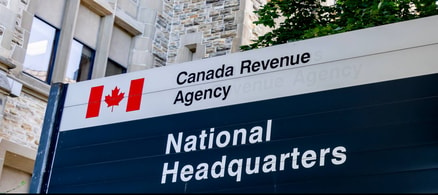Nerves are normal, but push through
Norman MacDonald, a tax lawyer with Rogerson Law Group, has spent more than 25 years as a litigator and specializes in tax disputes. However, he says he’s still not immune to the anxiety of receiving a notice from the CRA.
“Anytime a taxpayer is faced with an assessment or particularly a reassessment from the CRA, that can be intimidating,” says MacDonald. “Even myself, over the years, if I see … an envelope in my mail that has ‘Canada Revenue’ on the return address, I get a little nervous.”
From the moment a taxpayer receives their notice from the CRA, they’ve already lost some time — that’s because you’ve got 90 days to file a notice of objection. The countdown begins from the date the assessment was issued, which should be included in the letter.
Once that period has expired, you can still apply for an extension, though MacDonald says it just becomes an extra hurdle with more paperwork. And it’s up to you to prove you had a reason for not filing your objection sooner.
“No matter how wrong CRA was, and how easy it would have been at the time to fix the problem, after [that], you've got a huge if not an insurmountable problem,” says Rotfleisch.
Maximize Your Tax Refund with TurboTax Canada!
Simplify tax season with this user-friendly software. Get step-by-step guidance, maximize deductions, and file with confidence. Trusted by millions, TurboTax Canada ensures accuracy and peace of mind. Start your taxes today and get the refund you deserve
Get the tax refund you deserveDeciding whether to dispute or not
When you receive a notice from the CRA, there should be an explanation of how the agency landed on that assessment. MacDonald says some questions can be easily resolved by picking up the phone and calling the CRA directly.
More complicated issues can require retaining a lawyer. Again, moving quickly on that will ensure your case doesn’t get sent to collections before you can object — which Rotfleisch says is critical given the CRA’s extensive powers to claw back what it’s owed.
Fortunately, while an appeal is in the works, the CRA won’t move forward with collections.
But time again will be a factor. Simple objections still take about four months to resolve, says the CRA. It can take more than two years to resolve more complex cases, so buckle in. That being said, complex cases only represent 2% to 3% of the agency’s total objections workload.
Get organized and save yourself some trouble
MacDonald says before retaining a lawyer, you may want to consider whether it’s worth your while. He’s resolved some of his own issues with assessments, but if he wasn’t a lawyer, he might not have bothered.
“For the average person, if it was a few hundred bucks, it might not be worthwhile,” MacDonald says. “It wouldn't have been worthwhile for me to hire me in that case.”
You can always try to navigate the process yourself if you’re not inclined to pay a lawyer, or if the error is straightforward.
But if you do need the help of a legal professional, he suggests getting your documents in order first.
“It makes my job a whole lot easier … and I can focus just on the legal issues rather than doing the grunt work,” says MacDonald. “I'm charging you — the meter’s running — and the longer the time I have to spend on doing that kind of stuff, you're paying for it.”
The same advice applies when sending information to the CRA. If they can’t easily find the paperwork they need, they’re much less likely to rule in your favour since the burden of proof is on the taxpayer, he explains.
There’s also the matter of cost. For the last decade or so, MacDonald has been handling these cases for a flat fee, which is dependent on how much time the issue is expected to take to resolve. The flat fee means clients always know exactly how much his services will cost them.
Notices of objections typically cost $3,500-$4,500 to submit, with an hourly rate charged for subsequent work. MacDonald says he’s not the only lawyer out there moving in that payment direction.
As for Rotfleisch, his parting advice is to file an objection right away to get your foot in the door — as that will give you the time you need to sort it out.
“No matter how trivial it is or how simple it is, file the notice of objection, and deal with CRA, then you have forever to deal with it,” says Rotfleisch.
Sponsored
Trade Smarter, Today
With CIBC Investor's Edge, kick-start your portfolio with 100 free trades and up to $4,500 cash back.






